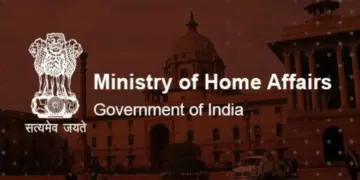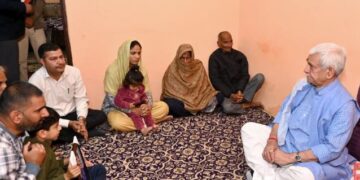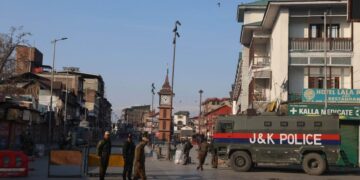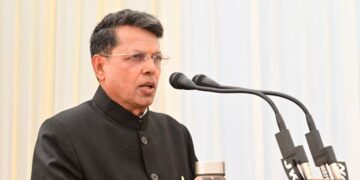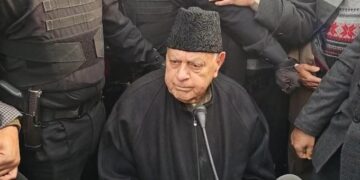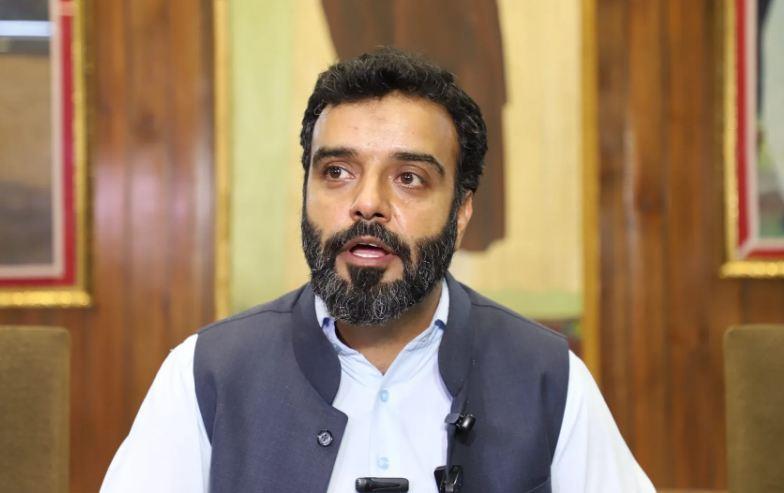Srinagar: The decision to allocate only 40 percent of positions for open merit in government job recruitments in Jammu and Kashmir has triggered widespread outrage among the youth in the Union Territory.
The move, which comes after accounting for reserved quotas, has led to opposition in various districts of the erstwhile state.
The youth in the Kashmir Valley and parts of Jammu have taken to the streets demanding meritocracy in government job placements.
This shift towards advocating for equity in opportunities reflects a new wave of sentiment among today’s youth.
The discontent among the youth underscores a growing need for policy reforms that address the aspirations of all candidates and uphold the principles of equal opportunity.
Be it NEET, NET, CUET or for that matter UPSC and JKSSB, the exams are a constant point of discussion at mushrooming coffee shops in the Valley where youths are expressing their disappointment over the ever reducing percentage of seats for the general category.
While political parties agree in private that open merit candidates have an unfair deal, none have come out and openly supported them as this would cost them votes from the reserved categories.
PDP leader Waheen Para in May posted on X that the new reservation policy undermined the merit and aspirations of countless intelligent students and eroded meritocracy. He had also appealed to the government for reconsidering the policy so that a balance is struck for all stakeholders to have equitable opportunities.
However, six hours later, he had to delete the post after PDP president Mehbooba Mufti distanced herself and the party from his views.
Prominent figures like Sahil Parray and leaders of the Youth Against Corruption (YAC) group such as Vinkal Sharma have been actively engaging with local politicians to address the concerns of students and job-seekers in the Valley.
Sharma and Parray, also a YAC leader, have been engaged in meetings with politicians such as newly elected Lok Sabha MP from Srinagar Syed Aga Rullah Mehdi on the issue.
Critics of the new reservation policy like Sharma have denounced the move as a “murder of open merit candidates”, citing concerns over limited opportunities for people from the general category in Jammu and Kashmir.
Sharma feels that the recent amendments to the Scheduled Tribes list, through the Constitution (Jammu and Kashmir) Scheduled Tribes Order (Amendment) Bill, 2024, raises questions about regional focus and potential impacts.
Supporting the cause of Kashmiri students, Sharma said at least 70 percent of the population in the Valley comprises general category students. “Now, with limited open competition seats, securing opportunities based solely on merit becomes more challenging,” he said.
The debate surrounding the reservation policy intensifies as voices like Javed Dar and Khandan Imtiyaz express fear of dashed dreams and restricted prospects for government employment in the region.
Dar, who hails from Baramulla, feels that the present reservation policy of the Union Territory goes against the 1992 Indra Sawney judgement of the Supreme Court that fixed a cap of 50 percent reservation.
“The new policy reserves 60 percent of government jobs and educational seats for various categories, leaving 40 percent for open competition. Additionally, concerns exist about the removal of the ‘creamy layer’ concept, which excludes those already benefiting from privilege within reserved categories,” he said.
Imtiyaz, a student pursuing a Masters in Political Science, has expressed strong disapproval of the Jammu and Kashmir government’s new reservation policy as he fears the policy will negatively impact students from the unreserved category.
He argues that while uplifting certain sections of society is important, it shouldn’t come at the expense of others.
“This policy will be the reason for the downfall of many dreams held by students from the unreserved category,” Imtiyaz said and urged policymakers to find a “just way out” that ensures opportunities for both the reserved and general categories without jeopardising the aspirations of deserving students.
A detailed breakdown of seat reservation has sparked debate and concerns among general category candidates.
The notification shows that Scheduled Castes have a eight percent reservation, Scheduled Tribes (20), socially and educationally backward classes (8), residents of Line of Control (4), residents of backward areas and economically weaker sections (10 percent each), persons with disabilities (4), children of defence personnel (3), outstanding sports candidates (2) and one percent for children of paramilitary and police forces.
The 2011 census data indicates that 69 percent of Kashmir Valley’s population falls under the general category, which encompasses individuals not classified under Scheduled Castes, Scheduled Tribes, and Other Backward Classes.


